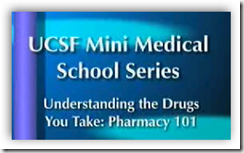This is one tough subject by all means. Yes, consumers want early access, but on the other hand if there’s not enough information regarding issues such as side effects, a drug could in fact hasten the process with individuals dying sooner, again studies are what is needed to be safe. I would almost want to venture to say that if a drug has not been approved and a patent wanted access, they would almost have to waive any rights to sue until the drug is shown to be effective and safe.
One shining star perhaps in this process though is research through Pharmacogenomics that could also shed some light here too, and this is still somewhat at the beginning stages but holds a lot of promise to predicting what outcomes will arise. We didn’t have this availability in the past, but now combined with clinical trials, it could very well stand to speed up some processes with additional information up front. Read this prior post and view the video from the University of California for an explanation of what  Pharmacogenomics is and it will help make a little more sense. BD
Pharmacogenomics is and it will help make a little more sense. BD
Both Avastin and Erbitux, now best-selling cancer drugs, were approved by the FDA in 2004. The alliance has pushed for early access to 14 other cancer-fighting drugs. All eventually received FDA approval, but for most of the alliance's members it was too late. "It's not my wife's death anymore that's making me passionate," said Walker, who said he pays his own expenses and receives no drug company funding for his alliance work. "I've accepted it and moved on. But things have actually gotten worse over the past five years. Despite the FDA's talk of modernizing trials, virtually nothing is happening where the rubber hits the road.
Man fights FDA's slow road to drug approval - St. Petersburg Times



0 comments :
Post a Comment